Thomas Cole: Lost Arcadia and Destructive Hubris
/Born in Bolton, Lancashire in 1801, Thomas Cole (1801–1848) travelled to America with his family at the age of 17 following the failure of his father’s business. Teaching himself painting from textbooks, he then showed America to the Americans, becoming over his short career both his adopted country’s first notable landscape artist and the founder of its first notable art movement, the Hudson River School.
A highly political painter, Cole’s five-part series “The Course of Empire” is only the most obvious polemic in a body of work infused with nostalgia and suspicious of development, be it industrial, commercial or agricultural.
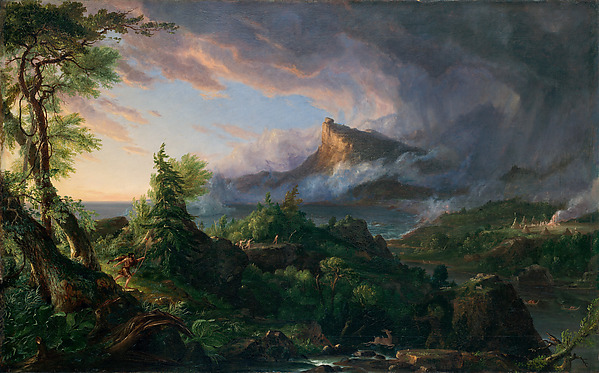
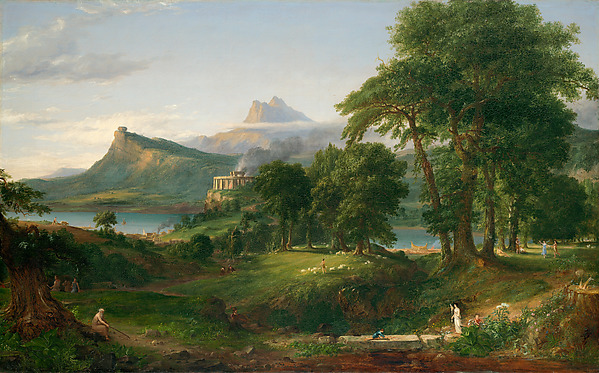


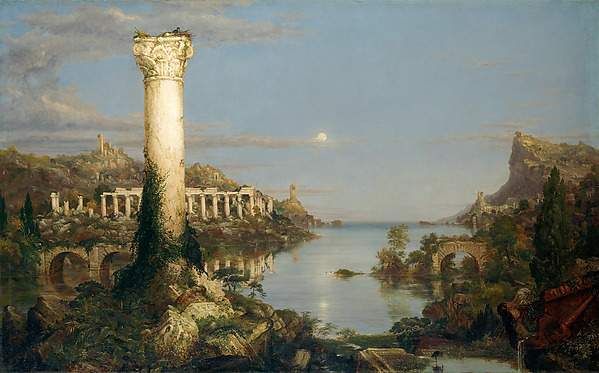
His best known work, the 1836 View from Mount Holyoke, Northhampton, Massachusetts after a Thunderstorm, generally known as The Oxbow, perfectly highlights the transition between the rich and beautiful forested wilderness in the foreground and the colourless and anodyne transformation to dull and listless grid of fields in the centre.
After his initial success in New York he returned to Europe in search of mastery, and to meet his heroes John Constable (1776–1837) and J.M.W. Turner (1775-1851). With Constable he developed a strong friendship, but he found Turner disappointingly chaotic and informal.
Cole’s undoubted technical proficiency in a pre-photographic age allowed him to create immersive works which draw the viewer into the envisioned space, although he perhaps overused the trick beloved of John Martin (1759-1854) (whom he also admired), of filling the centre of the canvas with brightness and darkening the sides, creating a tunnel towards the light. However he lacked the courage of Turner to move from painting with defined forms to painting with light, and the grandeur of many of his works is diminished by fussy detail.
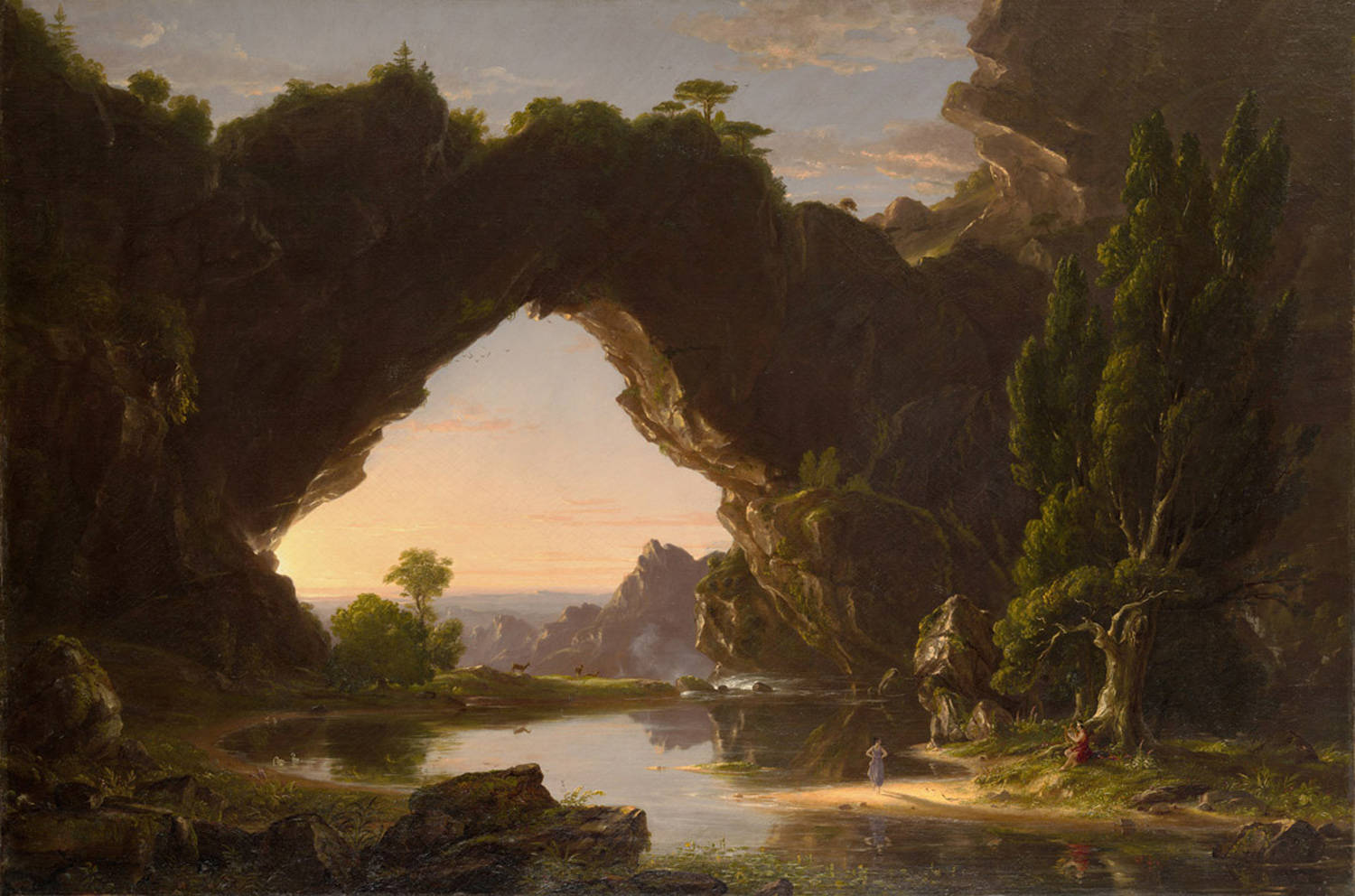


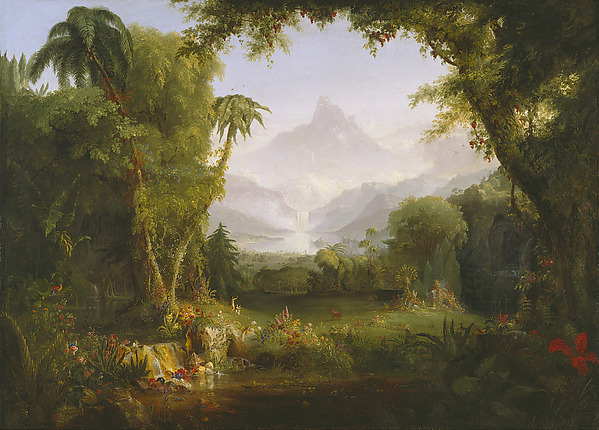
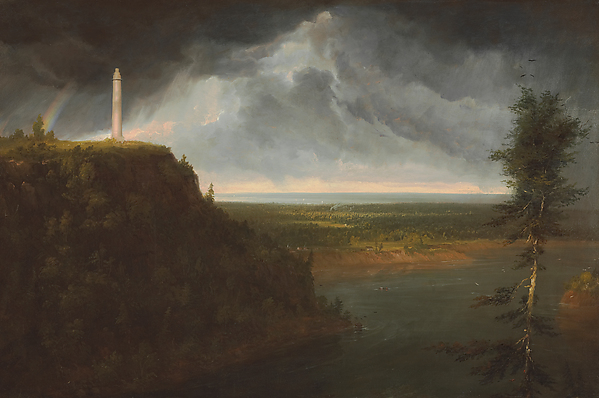

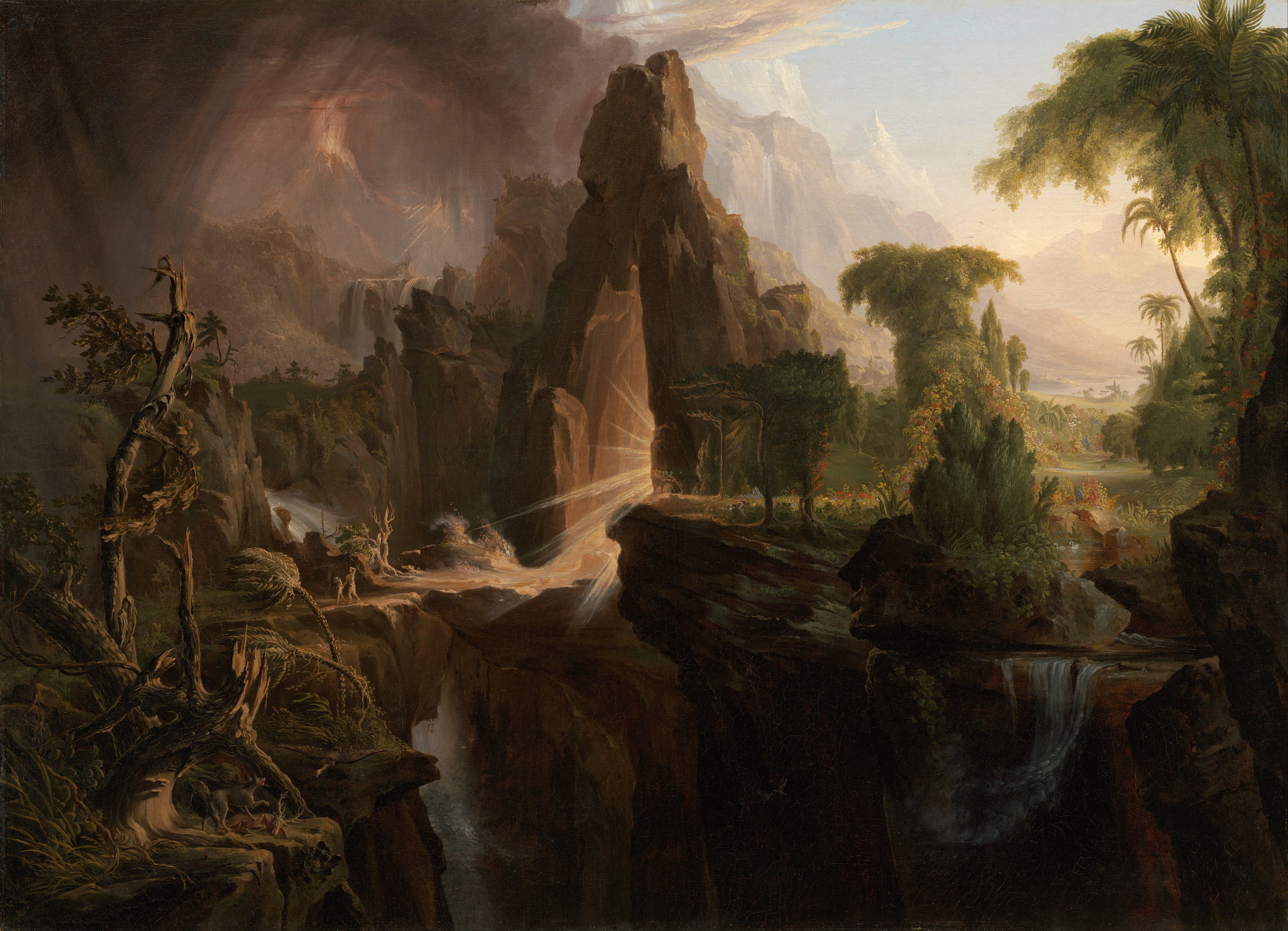
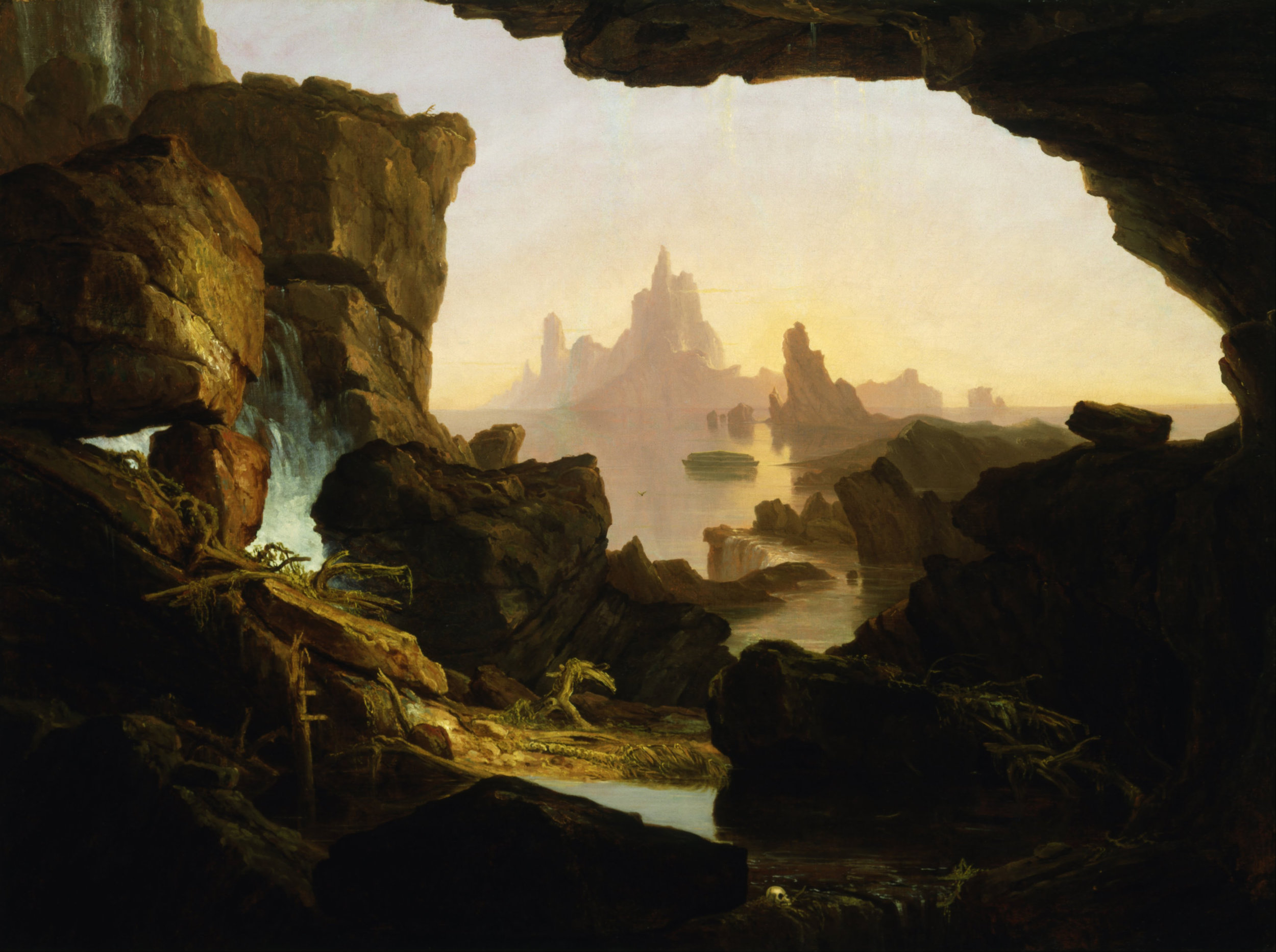
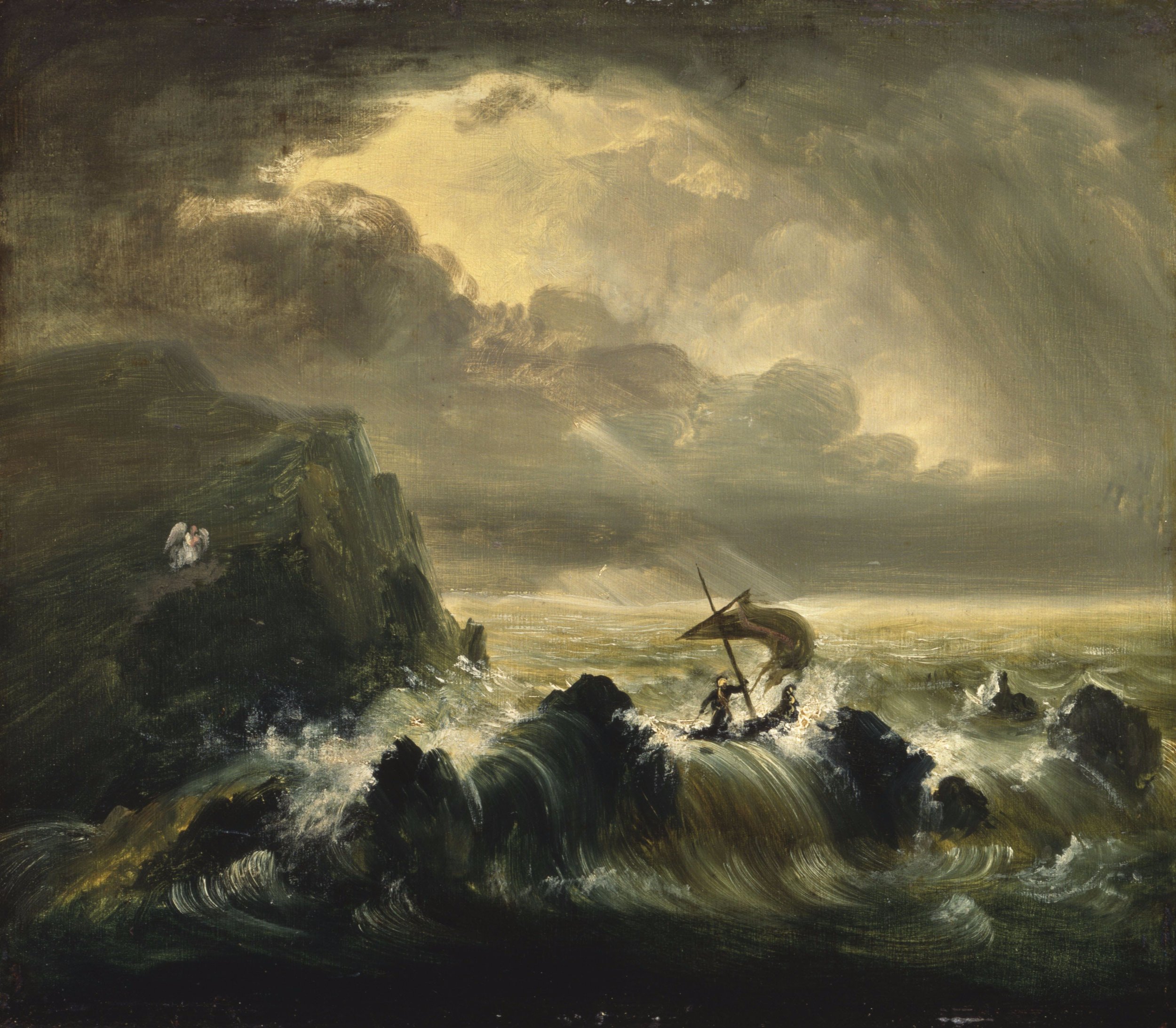
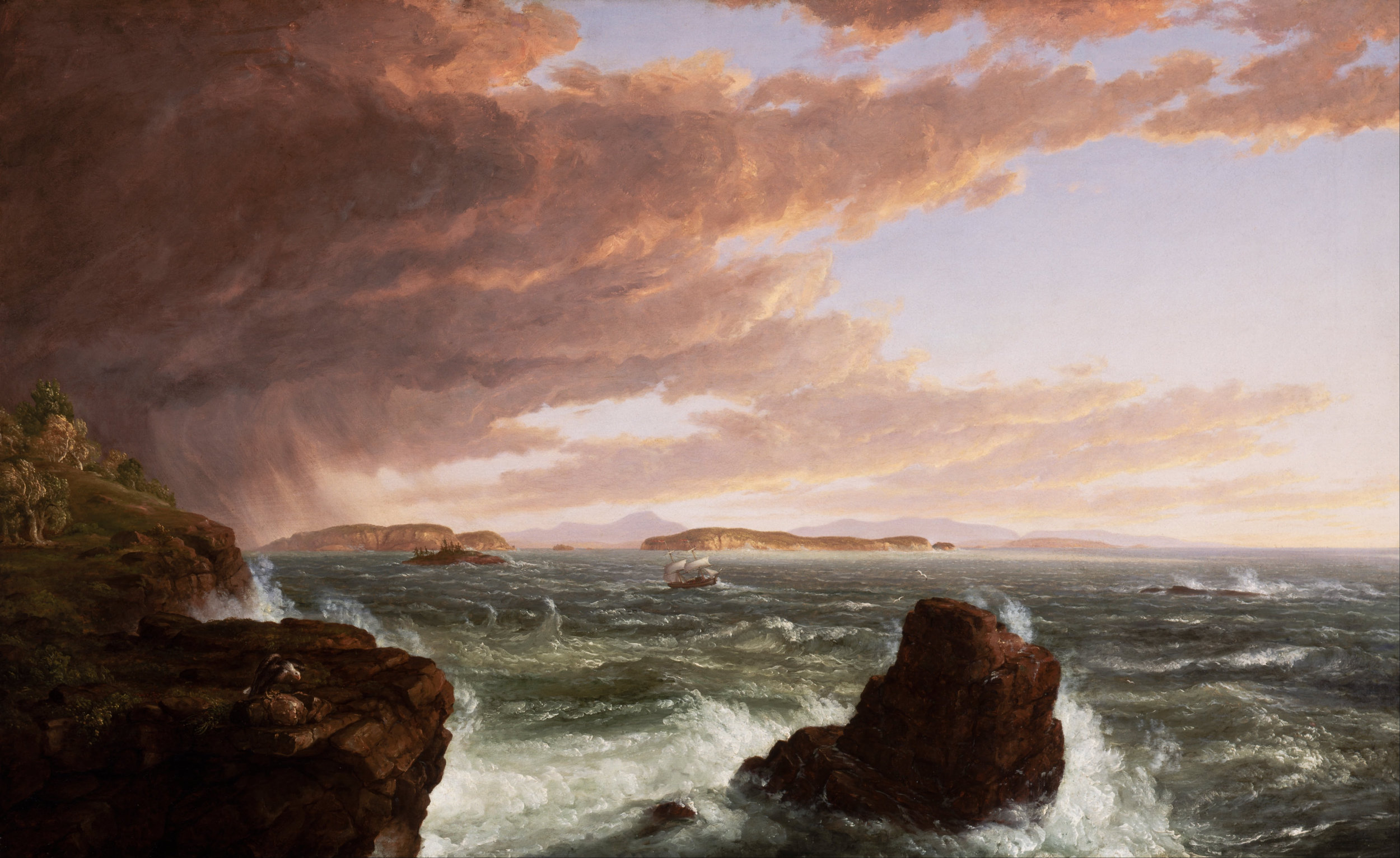
While early American pioneers and politics objectified the landscape as a resource to be claimed, colonised and exploited, Cole was at the forefront of a new philosophy that valued the natural world and rejected its destruction. Such disrespect of nature, Cole presciently alludes, will only lead to our doom.


